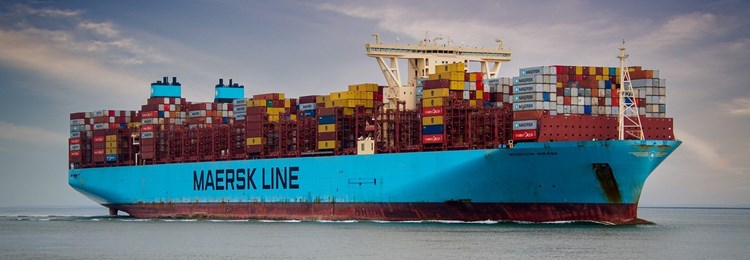
IAAF Insight: The Perfect storm - From container costs and raw material prices to driver shortages and other logistical issues – the automotive aftermarket is not exempt, IAAF warns
Date: Friday 17 September 2021
The ripple effects of the global supply chain crisis, played out very much on our TV screens, mean the automotive aftermarket will not be exempt from disruption. We have heard from many businesses over the past few weeks who raise concerns about the disruption we will face in the coming months. The issue is even more pressing during a time where trading is expected to increase due to the higher number of MOT tests taking place.
Here, we try and provide some insight on current issues:
Container prices
The price of shipping goods from Asia to Europe has soared over the past year, more recently though in the past few months.
Sending one 40ft container from Asia to Europe costs $17,500 (£12,650), more than 10 times the price of a year ago, says George Griffiths, editor of global container markets at S&P Global Platts.
On the back of meteoric rises, there’s been another $6,000 rise in shipping costs per container since the end of April. Effects are still being felt by the Suez Canal blockage and the service has also become poorer.
There have been numerous reports that containers are being left off vessels even after paying the high rates. This has certainly caused some businesses to over supply products, to try and maintain stock levels in Europe. The result is that there will be an issue with warehouse capacity, and the effect this will undoubtedly cause will actually lead to more uncertainty in shipping volumes well into 2022.
In addition, in Europe and the US, lorry driver shortages mean it is harder to move containers on to their destinations once on land. And port closures caused by Covid-19 outbreaks have further exacerbated the traffic jam.
Lorry driver shortages
The Government has announced up to 50,000 more HGV driving tests will be made available each year thanks to streamline the testing process and tackle the worldwide lorry driver shortage.
HGV driving tests will be overhauled, meaning drivers will only need to take 1 test to drive both a rigid and articulated lorry, rather than having to take 2 separate tests (spaced 3 weeks apart). This will make around 20,000 more HGV driving tests available every year and mean drivers can gain their licence and enter the industry more quickly.
Tests will also be made shorter by removing the ‘reversing exercise’ element – and for vehicles with trailers, the ‘uncoupling and recoupling’ exercise – and having it tested separately by a third party.
This new legislation is changing previous EU regulations which the UK is no longer obliged to use.
GTG Training is offering advice to drivers looking to gain a LGV / HGV Licence. It warns that in the interests of road safety it is vitally important to choose your Training Provider carefully and always ask what qualifications the Instructor holds, what suitable premises they have, what vehicles they use to conduct the training and the duration of the course to give you the best chance to pass your test first time.
Labour market in logistics sector
According to Knight Frank, vacancies in Logistics and Delivery occupations are rising fast. Currently, the number of roles being advertised is 173% higher than the same week in 2019, and far higher (circa six times more) when compared to the same period last year when the UK was in the throes of the first lockdown.
Some 41% of companies with 10 or more staff reported greater than usual recruitment challenges in the two weeks to September 5, up from 32% in early August, the Office for National Statistics (ONS) has also said.
Raw materials
The UK has struggled with raw material shortages since 2020, as some production slowed due to lockdowns and manufacturing plants closed. A surge in construction activity earlier in 2021 exacerbated the problem, and was compounded by shipping issues.
Businesses have reported being hit with “unprecedented and ongoing raw material inflation”, though prices are starting to recover. Without question, the issue is extremely volatile and expected to last until 2022.
Working from home set to continue
Most people do not believe workers will return to the office full-time after the coronavirus pandemic, an exclusive survey for the BBC suggests.
A total of 70% of 1,684 people polled predicted that workers would "never return to offices at the same rate".
The majority of workers said that they would prefer to work from home either full-time or at least some of the time.
But managers raised concerns that creativity in the workplace would be affected.
Half of 530 senior leaders also surveyed by polling organisation YouGov for the BBC said that workers staying at home would adversely affect both creativity and collaboration - against just 38% of the general public.
The IAAF will continue to provide insight into these issues. Please do contact the Federation with your experiences.
Image courtesy TSS Ltd.
https://www.thaisubsea.com/
